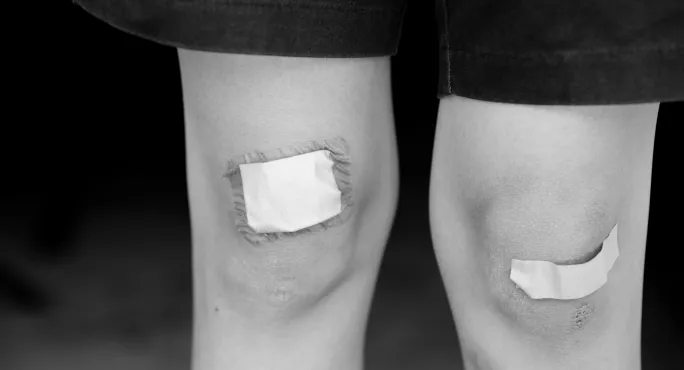I am lucky; I was a lucky child.
Growing up, I didn’t once get sent to school on an empty stomach. Nor did I ever have to worry about whether there would be dinner on the table at night when I got home.
Despite my best efforts, every morning I was sent to school in a clean uniform and when my shoes wore out, my parents bought me new ones.
My parents had the means to meet my basic needs. I was fed, watered, clothed and had a warm bed to sleep in each night, in a quiet house.
Like so many of us, I completely took it all for granted - I assumed that this was what life was like for everyone.
The sad reality is that this is not the case for a growing number of children living in the UK today.
Just over 4 million children are believed to be living in relative poverty and experts predict that the number will continue to rise as the effects of previous welfare cuts are fully felt.
The negative long-term impact of growing up in poverty is hard to overstate. In almost every measure, those who have grown up in poverty do less well than their peers. In terms of education, this can be seen in the gap at GCSE between those claiming free school meals and their peers.
However, it’s not just in educational outcomes that we see the long-term impact, poverty - perhaps unsurprisingly - affects health outcomes, too. Statistically speaking, those living in poverty have a life expectancy shorter than those living in more affluent parts of the country.
For these, and about a hundred other reasons, we should be moving heaven and earth to tackle the issue and yet, rather than child poverty declining, we are seeing signs that it is becoming a growing problem.
Teachers and school leaders are on the front line when it comes to dealing with the consequences of increased child poverty. At last weekend’s NAHT heads’ union annual conference we heard numerous school leaders talking passionately and at times emotionally about the impact child poverty was having on the pupils in their care.
As one member from London told us: “Children are hungry so we feed them breakfast and lunch, otherwise they cannot learn. Families are living on one room in shared houses with several other families, sharing a bed.”
Another from Derbyshire said: “I have observed children emotionally battered and unable to learn, pupils too hungry to think and deprived of sleep due to a lack of heating, bedding, and clothing. I’ve seen a pupil eat a biscuit for breakfast and have a mouldy piece of bread for lunch.”
These same school leaders find it impossible to just stand by and watch this happening. They step in and provide breakfast, free uniform and, in some cases, even set up food banks in their schools. They know only too well that a child cannot learn if all they can think about is where the next meal is coming from.
The government is not entirely unaware of the issue. We’ve previously seen money being invested into school breakfast clubs and this week we have seen them announce £9.1m in funding for free meals and activities in the school holidays.
As welcome as these schemes might be in the short term, they focus almost exclusively on the symptoms rather than the root causes. It feels as though sticking plasters are being applied when it’s major surgery that’s needed.
In fairness to the DfE, sticking plasters is all they really have to hand - major surgery is not a gift they have to give. What we need is for the residents of Downing Street to acknowledge the scale of the problem. We need the chancellor and prime minister (among others) to take a fresh look at their overall economic and social policies and to consider how they are affecting those children growing up in the most challenging and deprived circumstances.
That is why this week, NAHT and CPAG, the Child Poverty Action Group, have joined together for the first time to write to all MPs in England to share some of the heartbreaking examples of the impact of poverty on schoolchildren, and to demand that more urgent action is taken to end child poverty altogether.
While politicians might debate the merits of various welfare policies and systems, they need to remember that no child chooses the circumstances into which they are born and that one child growing up in poverty is one child too many, 4 million is nothing short of a national disgrace.
James Bowen is the director of policy at NAHT and director of NAHT Edge




